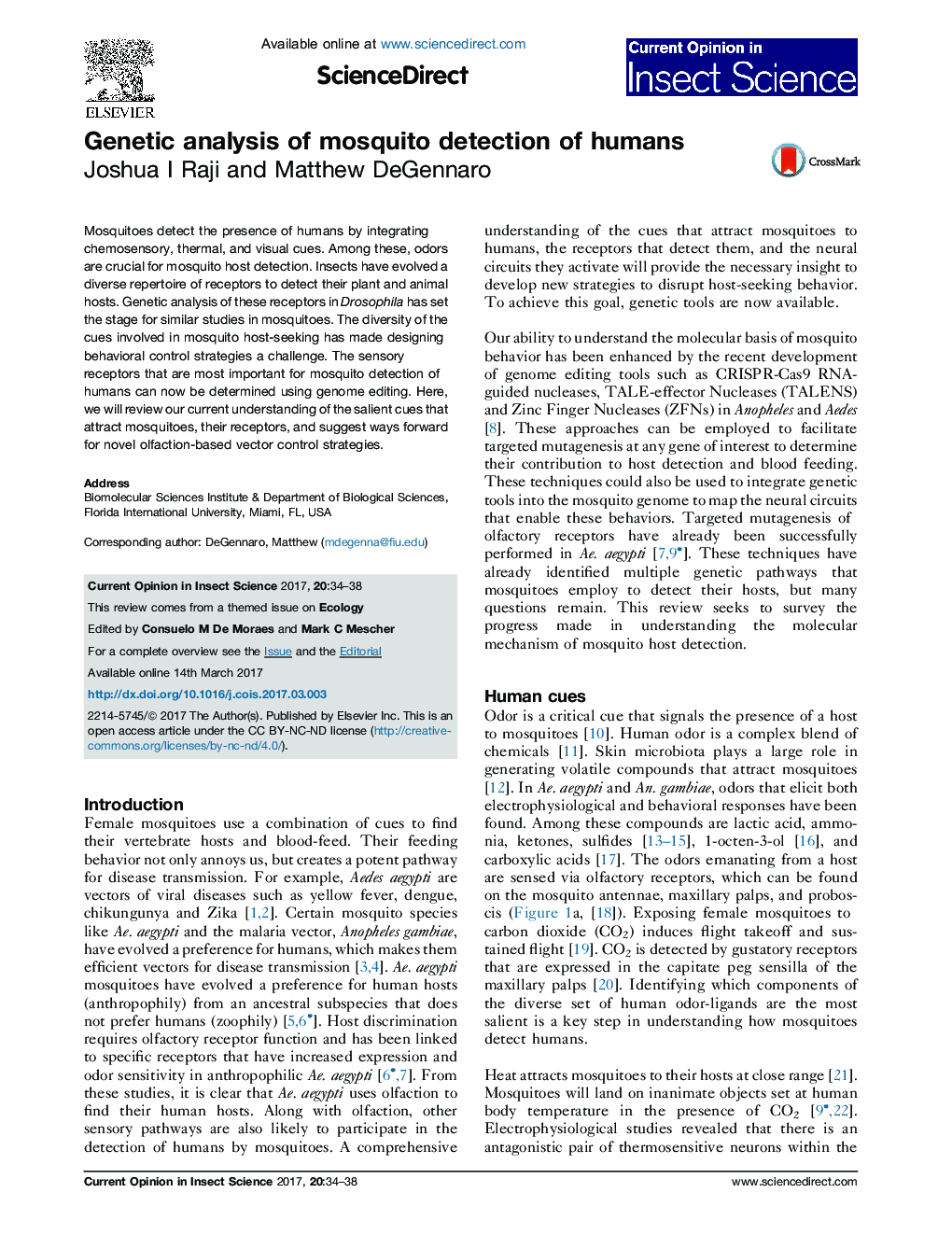| Article ID | Journal | Published Year | Pages | File Type |
|---|---|---|---|---|
| 5761146 | Current Opinion in Insect Science | 2017 | 5 Pages |
Abstract
Mosquitoes detect the presence of humans by integrating chemosensory, thermal, and visual cues. Among these, odors are crucial for mosquito host detection. Insects have evolved a diverse repertoire of receptors to detect their plant and animal hosts. Genetic analysis of these receptors in Drosophila has set the stage for similar studies in mosquitoes. The diversity of the cues involved in mosquito host-seeking has made designing behavioral control strategies a challenge. The sensory receptors that are most important for mosquito detection of humans can now be determined using genome editing. Here, we will review our current understanding of the salient cues that attract mosquitoes, their receptors, and suggest ways forward for novel olfaction-based vector control strategies.
Related Topics
Life Sciences
Agricultural and Biological Sciences
Agronomy and Crop Science
Authors
Joshua I Raji, Matthew DeGennaro,
